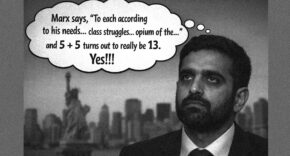President Donald Trump is considering sending rebate checks to Americans, funded by the billions of dollars his administration is collecting through tariffs on foreign goods. The idea, still in its early stages, would mark a new chapter in Trump’s economic strategy as he looks to ease the burden of tariffs while reinforcing his trade-first agenda.
A “Little Rebate” From a Big Pool of Revenue
“We have so much money coming in, we’re thinking about a little rebate,” Trump said to reporters outside the White House before heading to Scotland. “A little rebate for people of a certain income level might be very nice.” Trump added that although paying down the federal debt remains the top priority, rebates are actively under consideration.
So far in 2025, the federal government has collected more than $100 billion in tariff revenue, with projections that the total could climb to $300 billion by year’s end. According to Treasury Secretary Scott Bessent, the government is on track to collect $27 billion in July alone.
Who Might Qualify and How Much?
Trump did not offer specifics about who would qualify for the rebates or how much each person might receive. However, he indicated the checks would likely be targeted to Americans below a certain income level. This mirrors the structure of previous pandemic-era stimulus efforts, although those payments were issued in response to an economic crisis.
Some within the administration have also linked the rebate idea to potential savings from government efficiency programs, like the DOGE task force led by Elon Musk earlier this year, but those plans have not materialized.
Goals Behind the Proposal
The rebate checks serve multiple political and economic purposes. First, they could help offset rising consumer prices caused by import tariffs on everyday goods like electronics, vehicles, and household items. Second, they would act as a form of populist relief aimed at winning support from lower- and middle-income Americans.
At the same time, Trump’s team emphasizes that this is not a full-scale stimulus package. “The big thing we want to do is pay down debt,” Trump repeated. The federal debt currently stands at $37 trillion, and new tax cuts passed earlier this month are expected to add $3.4 trillion to the deficit over the next decade.
Supporters See Economic Relief
Proponents say rebates are a smart way to return money to taxpayers who are feeling the effects of higher import prices. Since companies like Walmart and Ford pay the tariffs when importing goods, those costs often get passed down to shoppers. A rebate could cushion the impact and keep consumers spending.
Supporters also argue that the tariff program is finally delivering meaningful revenue to the federal government. Unlike income or corporate taxes, tariffs bring in money from foreign competitors and reward domestic production.
Critics Warn of Inflation Risk
Economists and policy experts, however, are more cautious. Releasing rebate checks into an economy where inflation is still a concern could drive prices higher. Previous rounds of government stimulus have been linked to temporary spikes in inflation, even as Trump claims the problem is largely under control.
“Any boost in disposable income right now risks reigniting inflation,” said one financial strategist. More spending could lead to higher demand, which might push the Federal Reserve to raise interest rates again.
Another hurdle is legal: any new rebate program would likely require legislation from Congress to authorize payments, unless it’s structured through the existing tax code.
Though the rebate idea is not official policy yet, it signals a possible shift in Trump’s trade approach. What started as a tough-on-China strategy now includes the promise of returning some of the gains directly to American citizens. That populist pivot could be a major theme of Trump’s upcoming campaign trail as he promotes what he calls “America-first economics.”
Whether checks actually arrive in Americans’ mailboxes is still unclear. But for now, Trump is floating the idea as both an economic buffer and a political message: tariffs are not just about punishing foreign competitors, but also about rewarding the American people.
FAM Editor: Before income taxes, our government was entirely funded by tariffs. Will we get there again? Will they be enough? Is this even possible? Tune in next week, same Bat Time, Same Bat Channel…





